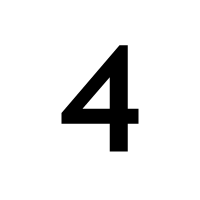- Afghanistan
- Åland Islands
- Albania
- Algeria
- American Samoa
- Andorra
- Angola
- Anguilla
- Antarctica
- Antigua and Barbuda
- Argentina
- Armenia
- Aruba
- Australia
- Austria
- Azerbaijan
- Bahamas
- Bahrain
- Bangladesh
- Barbados
- Belarus
- Belgium
- Belize
- Benin
- Bermuda
- Bhutan
- Bolivia
- Bonaire, Sint Eustatius, and Saba
- Bosnia and Herzegovina
- Botswana
- Bouvet Island
- Brazil
- British Indian Ocean Territory
- British Virgin Islands
- Brunei
- Bulgaria
- Burkina Faso
- Burundi
- Cambodia
- Cameroon
- Canada
- Cape Verde
- Cayman Islands
- Central African Republic
- Chad
- Chile
- China
- Christmas Island
- Cocos [Keeling] Islands
- Colombia
- Comoros
- Cook Islands
- Costa Rica
- Croatia
- Cuba
- Curaçao
- Cyprus
- Czech Republic
- Congo - Kinshasa
- Denmark
- Djibouti
- Dominica
- Dominican Republic
- Timor-Leste
- Ecuador
- Egypt
- El Salvador
- Equatorial Guinea
- Eritrea
- Estonia
- Ethiopia
- Falkland Islands
- Faroe Islands
- Fiji
- Finland
- France
- French Guiana
- French Polynesia
- French Southern Territories
- Gabon
- Gambia
- Georgia
- Germany
- Ghana
- Gibraltar
- Greece
- Greenland
- Grenada
- Guadeloupe
- Guam
- Guatemala
- Guernsey
- Guinea
- Guinea-Bissau
- Guyana
- Haiti
- Heard Island and McDonald Islands
- Honduras
- Hong Kong SAR China
- Hungary
- Iceland
- India
- Indonesia
- Iran
- Iraq
- Ireland
- Isle of Man
- Israel
- Italy
- Côte d’Ivoire
- Jamaica
- Japan
- Jersey
- Jordan
- Kazakhstan
- Kenya
- Kiribati
- Kosovo
- Kuwait
- Kyrgyzstan
- Laos
- Latvia
- Lebanon
- Lesotho
- Liberia
- Libya
- Liechtenstein
- Lithuania
- Luxembourg
- Macau SAR China
- Macedonia
- Madagascar
- Malawi
- Malaysia
- Maldives
- Mali
- Malta
- Marshall Islands
- Martinique
- Mauritania
- Mauritius
- Mayotte
- Mexico
- Micronesia
- Moldova
- Monaco
- Mongolia
- Montenegro
- Montserrat
- Morocco
- Mozambique
- Myanmar [Burma]
- Namibia
- Nauru
- Nepal
- Netherlands
- Netherlands Antilles
- New Caledonia
- New Zealand
- Nicaragua
- Niger
- Nigeria
- Niue
- Norfolk Island
- North Korea
- Northern Mariana Islands
- Norway
- Oman
- Pakistan
- Palau
- Palestinian Territories
- Panama
- Papua New Guinea
- Paraguay
- Peru
- Philippines
- Pitcairn Islands
- Poland
- Portugal
- Puerto Rico
- Qatar
- Congo - Brazzaville
- Réunion
- Romania
- Russia
- Rwanda
- Saint Barthélemy
- Saint Helena
- Saint Kitts and Nevis
- Saint Lucia
- Saint Martin
- Saint Pierre and Miquelon
- Saint Vincent and the Grenadines
- Samoa
- San Marino
- São Tomé and Príncipe
- Saudi Arabia
- Senegal
- Serbia
- Serbia and Montenegro
- Seychelles
- Sierra Leone
- Singapore
- Sint Maarten
- Slovakia
- Slovenia
- Solomon Islands
- Somalia
- South Africa
- South Georgia and the South Sandwich Islands
- South Korea
- South Sudan
- Spain
- Sri Lanka
- Sudan
- Suriname
- Svalbard and Jan Mayen
- Swaziland
- Sweden
- Switzerland
- Syria
- Taiwan
- Tajikistan
- Tanzania
- Thailand
- Togo
- Tokelau
- Tonga
- Trinidad and Tobago
- Tunisia
- Turkey
- Turkmenistan
- Turks and Caicos Islands
- Tuvalu
- U.S. Virgin Islands
- Uganda
- Ukraine
- United Arab Emirates
- United Kingdom
- United States
- U.S. Minor Outlying Islands
- Uruguay
- Uzbekistan
- Vanuatu
- Vatican City
- Venezuela
- Vietnam
- Wallis and Futuna
- Western Sahara
- Yemen
- Zambia
- Zimbabwe
How to Prepare and What Expect for a Job Interview

How to Prepare and What Expect for a Job Interview
Your job interview does not have to be a daunting event, whether you are in high school, college, a recent college graduate, or have been out of the labour. An interview allows both you and the company to determine whether or not you are a good fit.
Here's a step-by-step breakdown of a typical interview, including information on what to expect during the process.
The Pre-Interview Period
- You will have previously completed a number of steps in the job application process before attending to the interview; this is known as the "pre-interview phase." You will have provided a cover letter, resume, and any other needed application materials to the hiring manager at this round.
- Before being asked in for an in-person interview, you may have had a phone interview with the management. As a result, the hiring manager knows a little something about your past and credentials before you ever step into the interview.
The Interview Phase: The Start
- Your interview may be held in your high school or college, but it will most likely be held at the company's office or virtually via web-based technology. When you arrive, you may be requested to wait (by a secretary or another employee) until the hiring manager is ready to meet with you.
- The majority of interviews are one-on-one with the manager or supervisor with whom you will be working the most closely at the organisation. You will occasionally be interviewed by a human resources person who is in charge of the company's recruiting processes.
The Interview Phase: Question Types
- The interview will most likely be held in the manager's office. She may start with information about her career or the firm, or she may engage you in small conversation (questions about your commute, for example), but the majority of the interview will be focused on specific questions designed to determine whether or not you will be a good match for the organisation.
- There will be no two interviews that are exactly same; each interviewer will ask slightly different questions. Most interviewers, however, ask questions to assess both your general demeanour and your talents. The following are some of the sorts of questions you might expect to be asked; most interviewers will ask some of each type of question.
Questions for Verification
These questions will need you to offer objective facts about yourself, such as your GPA, major, number of years at your most recent work, and so on.
Competency/Behavioral Issues
A behavioural inquiry encourages you to recount a previous circumstance in which you displayed a specific attribute. These questions reveal how you could handle similar situations in your new work. As an example of a behavioural inquiry, consider the following: "Describe the most difficult issue you experienced at your previous work. How did you deal with it?"
Situational Issues
A situational question is one in which the interviewer discusses a hypothetical circumstance and the interviewee is required to explain how she would manage it or has handled similar situations in the past. The interviewer wants to discover how you will manage circumstances that may happen in the job using this sort of inquiry. "What would you do if two members of your team had a quarrel that hindered your productivity?" is an example of a situational question.
Questions for Case Interviews
- If you are seeking for a career in management consulting or investment banking, you will most likely be asked case interview questions. In case of interview questions, the employer presents a business scenario to the employee and asks how he would manage the circumstance.
- Sometimes they are legitimate business inquiries, while other times they are brain teasers with no direct relation to the job ("How many petrol stations are there in Europe?"). Case interview questions provide applicants the opportunity to exhibit their analytical and problem-solving abilities.
The Interview Phase: Following the Questions
The interviewer may ask questions for 30 minutes to an hour or longer. Following that, she will most likely ask you if you have any questions for her. This is your chance to inquire about the firm and/or the role itself. It also provides you with another opportunity to market yourself to the interviewer.
- The hiring manager may offer you a tour of the company and perhaps introduce you to other employees after the "questions" section of the interview. A tour will allow you to meet your possible coworkers and analyse the ambiance of the company.
- While this is normally the conclusion of the interview, some interviews may include extra components, such as giving a presentation to the recruiting manager or a staff panel. However, if this is the case, you will have been informed in advance and will have had sufficient time to prepare.
- Do not expect the recruiting manager to inform you clearly whether or not you got the job after the interview. However, if she hasn't previously informed you when you may expect a response, feel free to ask her before you go.
The Phase Following the Interview
- The "post-interview phase" of the job application process occurs in the days after the interview. This is the stage in which the hiring manager (and anybody else engaged in the hiring process) determines if you are the best match for the job. This is also the time to consider whether or not the employment is a good fit for you.
- Most organisations will react with a "yes" or "no" within a week or two, however others will take much longer (especially if they are conducting interviews over a lengthy period of time). Unfortunately, some organisations will not react unless you have a job offer.
- Remember that no interview is a waste of time, even if you do not obtain the job or decide it is not a good fit for you. Every interview is an opportunity to hone your interview skills and determine which sorts of jobs and organisations are a good fit for your personality, interests, and talents.
Group interviews are another type of interview.
While this article represents a standard interview between one hiring manager and one interviewee, you may face various sorts of interviews. Some popular instances are provided below.
A group interview is one sort of interview in which one hiring manager interviews you and other applicants at the same time. In this situation, the interviewer may ask you all the same questions or may ask you all different ones. Sometimes (especially when posed case interview questions), you will work together to address hypothetical difficulties.
Another sort of group interview has multiple interviewers asking you questions. The interviewers will either form a panel and take turns asking you questions, or you will meet with each one individually.
Whether you are in a group interview or not, your interview questions will most likely include of a combination of verification, behavioural, and situational inquiries.

 by Admin
by Admin


